I have in my program defined an object log.
LoginModel log = new LoginModel ( ) ;
I do not write values into it. But why the object is not NULL when my function return it? (See picture)
[Bind(Exclude = "UserID")]
public class LoginModel
{
[ScaffoldColumn(false)]
public int UserID { get; set; }
[ScaffoldColumn(false)]
public string FirstName { get; set; }
[Display(Name = "E-mailadresse")]
[Required(ErrorMessage = "Skriv venligst din e-mailadresse", AllowEmptyStrings = false)]
[EmailAddress(ErrorMessage = "Ugyldig e-mailadresse")]
[DataType(DataType.EmailAddress)]
public string Emailaddress { get; set; }
[Display(Name = "Kodeord")]
[Required(ErrorMessage = "Skriv venligst et kodeord", AllowEmptyStrings = false)]
[DataType(DataType.Password)]
[StringLength(8, MinimumLength = 4, ErrorMessage = "Kodeordet skal mindst bestå af 4-8 karakter.")]
public string Password { get; set; }
}
